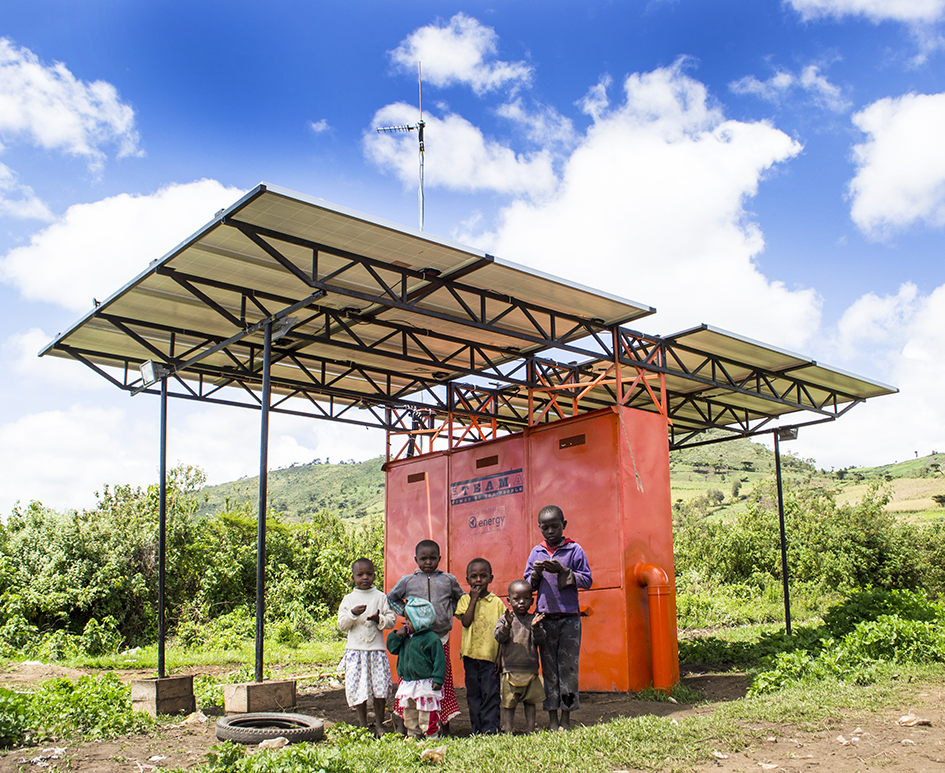Odyssey Energy Solutions, a platform provider that connects mini-grid developers and investors, annonced its project portfolio had surpassed 550 mini-grid projects with a total investment volume of US$500 million.
The company says its pipeline has a capacity of around 150 MW of solar PV, amounting to 275,000 connections. These projects were developed by 50 different private sector utilities across 21 countries in Africa, Asia, and Latin America. The platform currently comprises over 100 developers, investors, vendors and government institutions, and experienced a noticable uptake of users over the last months.
“With no outbound marketing, we’re seeing incredible uptake of the Odyssey platform,” said company’s co-founder and CEO, Emily McAteer. “By using software and data analytics to streamline and standardize mini-grid project development and financing, we’re able to aggregate projects into bankable portfolios that meet investors’ ticket sizes and diligence requirements, paving the way for more capital to come into the sector.”
Odyssey's business model connects stakeholders along the value chain, thus allowing developers, financiers, vendors, governments and donors to interact and access valuable data on any given project on a single platform.
The company alleges that developing mini-grids in this manner has significantly streamlined all processes and aggregate projects into bankable portfolios with ticket sizes that would meet investors' due diligence requirements. Odyssey says its project ticket sizes vary between $40,000 and $3 million, depending on the project size.
UN data suggests that there are around 1 billion people currently without access to electricity worldwide; a significant portion of them reside in Sub-Saharan Africa. Odyssey says that mini-grids could meet the energy demands of around 700 million at the lowest costs, making mini-grids a top candidate for large-scale deployment in those regions.
As pv magazine previously reported, BloombergNEF says it could cost between US$266 and $2,100 per household to establish a grid connection. In high-income areas, this is less of a problem, as households are equipped to pay additional energy prices. However, energy prices would climb in low-income areas, as the grid operators have to amortize the installation with modest energy consumption.
BloombergNEF calculates that energy from solar home systems costs around $1.5/kWh and, if sourced from microgrids, would be $0.29-0.77/kWh. The report goes on to claim that the costs of electricity after a new connection would be $1/kWh, hence higher than the costs of energy if a microgrid is deployed.
Odyssey cites that another 200,000 mini-grids would be required to fulfill universal energy needs; leaving a large, mostly untapped, market for many companies to enter. The BloombergNEF analysts say that the market for solar home systems and microgrids could be a $64 billion market by 2030.
“With Odyssey, there is finally a one-stop shop for mini-grid development,” said Olusegun Odunaiya, CEO at Havenhill Synergy a company that developed a mini-grid with Odyssey. “Odyssey has allowed us to quickly conduct rigorous technical and economic analyses for mini-grid projects in our pipeline and then create portfolios suitable for financing.”
The article was amended on 07.08.18 to clarify that Odyssey's pipeline amounts to 275,000 connections, since it previously suggested that this amount of connections had been achieved already.
This content is protected by copyright and may not be reused. If you want to cooperate with us and would like to reuse some of our content, please contact: editors@pv-magazine.com.




By submitting this form you agree to pv magazine using your data for the purposes of publishing your comment.
Your personal data will only be disclosed or otherwise transmitted to third parties for the purposes of spam filtering or if this is necessary for technical maintenance of the website. Any other transfer to third parties will not take place unless this is justified on the basis of applicable data protection regulations or if pv magazine is legally obliged to do so.
You may revoke this consent at any time with effect for the future, in which case your personal data will be deleted immediately. Otherwise, your data will be deleted if pv magazine has processed your request or the purpose of data storage is fulfilled.
Further information on data privacy can be found in our Data Protection Policy.